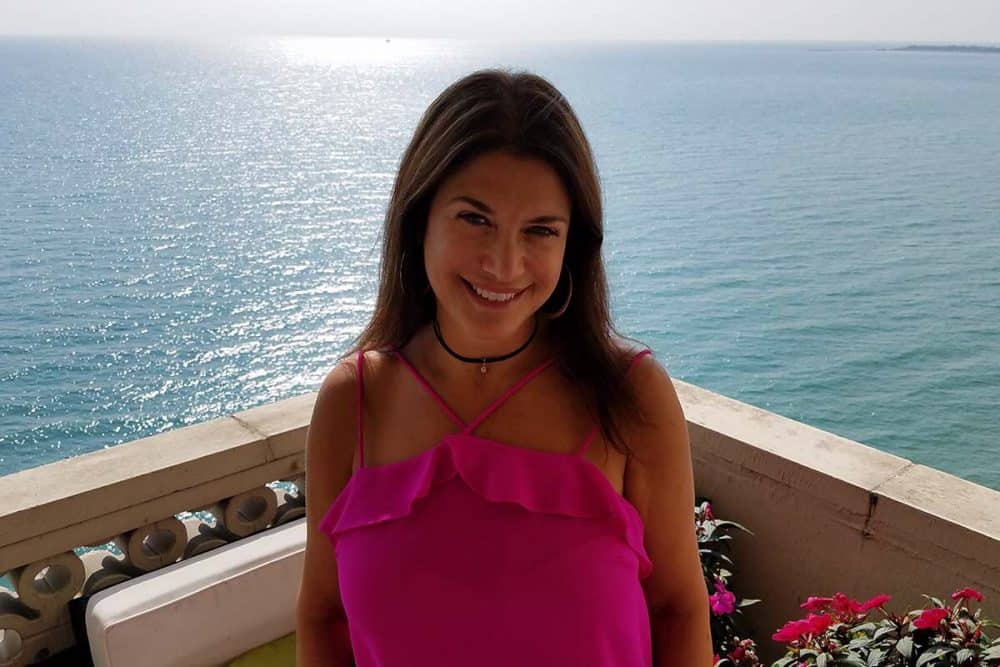
Ending the Stigma Around Anal Cancer
Lillian Krepel is someone who likes to get things done. The native New Yorker works in sales, planning corporate health and wellness events. It’s her job to talk to people and make things happen.
This proactive attitude extends to her health. Lillian has a family history of cancer; she lost her grandmother to colorectal cancer, so the 53-year-old has been getting regular colonoscopies for more than ten years. Many years ago, she was diagnosed with human papillomavirus, which can be tied to several types of cancer, so she also makes frequent visits to her gynecologist for monitoring.
During the summer of 2017, Lillian started having some alarming symptoms, pain and bleeding, while going to the bathroom. A particularly uncomfortable sensation during Pilates class was the last straw.
“Something wasn’t right. I’ve known my gastroenterologist since I was 40, and I just knew I had to go see him,” Lillian says.
Lillian described her symptoms to her gastroenterologist, who performed a digital rectal exam and a sigmoidoscopy. This procedure specifically looks at the lower third of the colon.
After the tests, Lillian’s doctor told her she had a cancerous tumor. “You think you’re fine, and then you walk into the doctor’s office one day and your whole life changes,” she describes. “He asked if I was OK, and I said yes. I really was, because my attitude was, let’s take care of this. Let’s get it done.”
Lillian came to Memorial Sloan Kettering Cancer Center and was officially diagnosed with stage Il anal cancer. She first met with MSK surgeon Martin Weiser. He suggested that she see Paul Romesser, a radiation oncologist with special expertise in treating anal cancer.
Their first visit together was a long one. “Lillian came in the first day and was incredibly enthusiastic and motivated to beat her cancer,” Dr. Romesser recalls. “She came with a very close friend, and they both had a lot of questions written down. We talked through each one and were really able to set the stage for her treatment course.”
“Dr. Romesser told me from the very beginning that my outlook was good, but he was honest and said it wasn’t going to be a walk in the park,” Lillian says.
They agreed on a plan. Lillian would receive 28 days of radiation treatment, combined with daily oral chemotherapy. She would also have two chemo infusion treatments, at the beginning and near the end of her radiation.
“The goal of Lillian’s treatment was to cure her while maintaining important organ function,” Dr. Romesser explains. “One way to achieve a cure could have been to do a big surgery, but that would have meant she would never have had a normal bowel movement again.” By using chemoradiation, “we could keep critical organs intact and help improve her quality of life,” he adds.
With treatment under way, Lillian called on her large network of friends to help her through the ordeal. “I had a different friend come with me every single day. I even made a schedule,” she remembers. “I didn’t need them to come with me because I was physically OK—l even walked home from treatment sometimes—but I wanted them there. They were my cheerleaders.”
Combining a strong support network with her relentlessly positive spirit made Lillian an excellent patient, says Dr. Romesser. “She was so on top of her health, and I don’t think this started with her diagnosis. I truly think she’s always been this way.”
Near the end of treatment, things got tough. The weeks of radiation left Lillian with pain and soreness at the treatment area, but she did everything she could to take care of herself, including alerting her care team when issues came up.
“What Lillian experienced was not easy,” Dr. Romesser says, but “she came with a remarkable attitude and energy.”
Lillian completed her treatments in December 2017 with a very good prognosis, but the real work was just getting started.
Striking Down Stigma
With treatment over, Lillian’s first order of business is to throw a party to say thank you to all her friends who stood by her side. But among all the fun and planning, Lillian is already hard at work raising awareness about this unusual cancer.
“Anal cancer is a rare disease, and there’s a stigma around it,” Lillian says. “We have to spread the word because a lot of people don’t know about it.”
Dr. Romesser echoes her sentiment. Approximately 8,500 people will be diagnosed with anal cancer in 2018, according to the American Cancer Society, and doctors are still trying to understand who to screen for the disease and how best to do it. “Anal cancer can be missed during a colonoscopy. And while we know who may be at a higher risk, we still have not identified appropriate screening tests to diagnose people early,” Dr. Romesser says. “This is an active area of research.”
If someone is diagnosed with anal cancer, Dr. Romesser suggests that they seek out a high-volume hospital that has a lot of experience in treating the rare disease, like MSK. “With MSK’s level of expertise, people who come to us can be assured they will get care that’s second to none,” he explains.
Lillian is doing her part to spread the word: “I’m telling everyone, ‘If you have any type of symptoms, see your doctor.’” She’s also working with advocacy groups to encourage gastroenterologists and gynecologists to check specifically for anal cancer.
“By connecting doctors with advocacy groups, Lillian is helping improve the care of people with anal cancer, not only at MSK but around the world. That’s a testament to who she is,” says Dr. Romesser.
This story was originally published at: https://www.mskcc.org/experience/hear-from-patients/lillian











7 comments to "Ending the Stigma Around Anal Cancer"